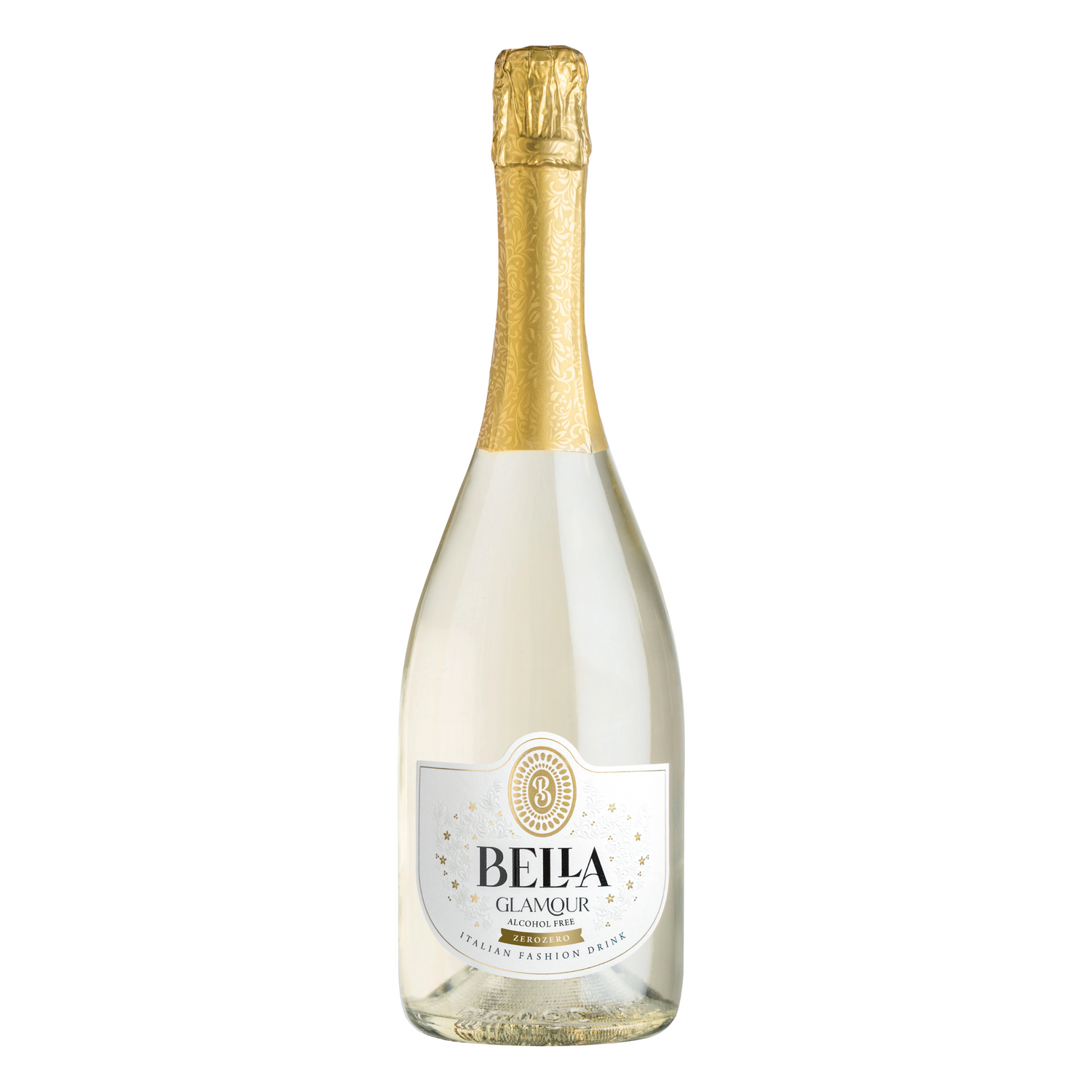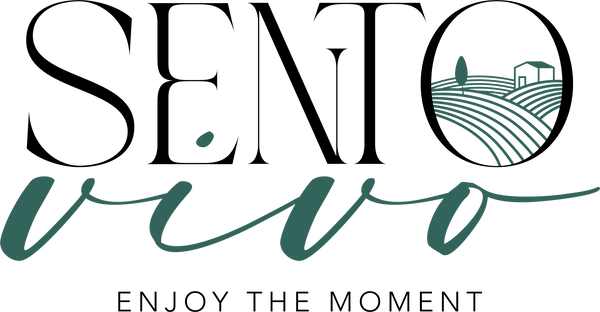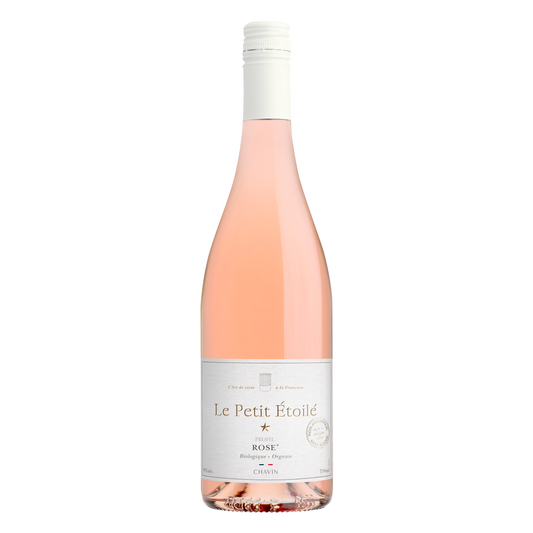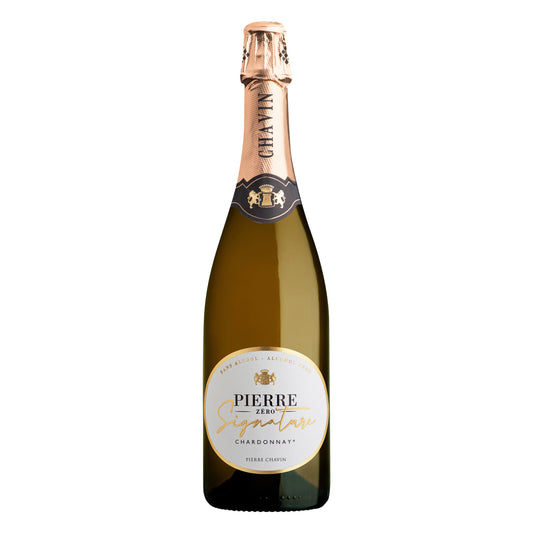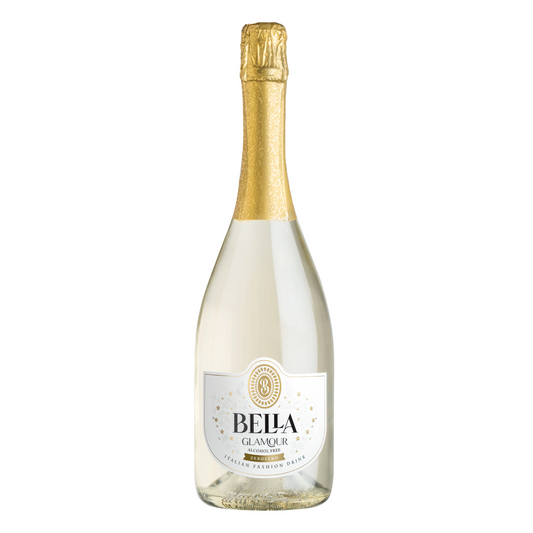An elegant, stylish experience - what can a driver drink?
A vezetés szabadság. Ugyanakkor felelősség is. De vajon kizár-e egy társasági eseményből, hiszen aki vezet, az - remélhetőleg! - nem iszik. A mi véleményünk az, hogy a stílusosan megélt pillanatok nem csak azok kiváltságai, akik bort kortyolgatnak egy vacsora mellé. Az alkoholmentes, mégis kifinomult italok egy olyan világ felé nyitottak kaput, amelyben az ízlés, a felelősség és az élmény kéz a kézben jár.

Driving is freedom. But it is also a responsibility. But does it exclude you from a social event, since the driver - hopefully! - does not drink. Our opinion is that moments lived in style are not only the privilege of those who sip wine with dinner. Non-alcoholic, yet sophisticated drinks have opened the door to a world in which taste, responsibility and experience go hand in hand.
The idea persists that those who drive are missing out on something. That they only "ask for water" during the evening program. However, the reality is different, because thanks to non-alcoholic wines , champagne and aperitifs, those who drive can also safely toast with an elegant Aperol or a glass of champagne cocktail - but their blood alcohol level remains 0.0%.
Even if you drive, the experience can be complete.
Sitting behind the wheel is not only a responsibility, but also a kind of conscious presence that offers a much deeper experience than we might first think. The driver is attentive, present, and does all this with a clear head – which is not weakness, but strength, not resignation, but choice.
Self-restraint in this case is not about prohibition, but also about a kind of refined self-control that provides the opportunity to be truly present. And this is true not only for moments of driving, but also for time spent in company. Someone who arrives somewhere as a driver can enjoy the flavors and atmosphere just as much - while also taking responsibility for others.
The experience does not depend on the amount of alcohol consumed, but on how present we are: how much we pay attention to each other, how much we value quality, and how deeply we can experience the moment. The one who leads is not left out – but indulges in pleasures in a different quality. More clearly, more consciously, with style.
A new sense of life without alcohol
The world of premium non-alcoholic beverages is now not just an alternative, but a culture in its own right. 0.0% beverages are not “almost like” – they are exactly what they want to be: characterful, sophisticated and enjoyable in their own right. The complex flavor profiles, carefully selected ingredients and premium-looking bottles in design all show that these beverages are not secondary players, not substitutes, but equal participants in the social event and experience.
Non-alcoholic sparkling wines , wines or aperitifs are not forced substitutes for various alcohols – but rather the cornerstones of a new lifestyle. Drinks that are based on awareness, sophistication and freedom of choice, where responsible decisions and joyful moments do not exclude each other, but exist side by side in perfect harmony.
So, whoever drives doesn't give up - they choose. And a glass of premium non-alcoholic beverage contains everything we think about experience and style.

The world of Sento Vivo: sophistication even at the wheel
Sento Vivo is not just a product, it is a lifestyle. It is a world of elegance and conscious choices, where each drink is a statement: "it can be different". The brand's carefully selected, delicious and aesthetically impeccable drinks add elegance, style and awareness to any event.
The Sento Vivo philosophy is about moderate but full enjoyment. How the harmony of flavors, experience and form can be as powerful and captivating as a traditional alcoholic beverage – but without the alcohol. This approach allows you to have a complete experience even behind the wheel: without compromise, in style.
Alcohol-free in gastronomy
Non-alcoholic drinks are not only alternatives to the classic wine, cocktail or champagne consumption, but also extenders of gastronomic pleasures . A carefully selected 0.0% champagne or aperitif is not only an experience on its own, but also stands out perfectly when paired with various dishes. Whether it's a light salad, a spicy Asian dish or an elegant dessert - the right non-alcoholic drink highlights the character of the dish and takes the tasting experience to a new level just like the alcoholic versions.
The harmony of food and drink does not depend on the alcohol content, but on the harmony of the flavor profiles - and even those who are not allowed to consume alcoholic beverages as drivers should not miss out on this gastronomic experience.
Soft drink is not a copy - independent world
Leadership does not exclude the festive atmosphere, it does not exclude you from anything – in fact, it creates an opportunity for someone to reinterpret the concept of participation and enjoyment. Those who decide to stay sober do not retreat into the background, but represent a new quality : attentive presence, discerning choice, and leading by example.
The experience of non-alcoholic drinks is not a copy, but a world of its own . A world that is for those who want to not only experience, but also shape the moment. In taste, atmosphere, appearance – without compromise.
Sento Vivo represents this approach. In one sip, there is the elegance of self-discipline, the confidence of conscious decision and the openness with which to rethink social presence. Not only for those who lead – but for all who understand: the 0.0% feeling of life is not less, but more refined.
Related Products
-
CHAVIN Le Petit Étoilé Rose - alcohol-free wine
Vendor:CHAVINRegular price 4.990 FtRegular priceUnit price / per -
CHAVIN Pierre Zéro Signature Chardonnay Sparkling - non-alcoholic sparkling wine
Vendor:CHAVINRegular price 8.650 FtRegular priceUnit price / per -
BELLA Glamour ZeroZero - non-alcoholic sparkling white wine
Vendor:BELLARegular price 4.943 FtRegular priceUnit price / per
Cikk ajánló
-

Dry November: Try the alcohol-free lifestyle
Dry November. What is the first thing that comes to mind when you hear this phrase? You are the one who says: I accept the challenge! Or the one who shakes his head and admits: For me, that would be too much of a sacrifice. Maybe the one who shrugs his shoulders in confusion while whispering: I've never even heard of him. Whichever group you belong to, dry November may have something new in store for you. What is Dry November and where does the challenge come from? Although we know it as Dry November in our country, the initiative originated in Great Britain and was originally known as Dry January. Today, millions of people join the challenge every year to stop drinking alcohol for a month and experience its beneficial effects. And what is the real purpose of the 30-day challenge? It's important to clarify at the outset: the basic message of Dry November is not to encourage everyone to commit to eternal and complete abstinence. It is more of a 30-day break, a kind of relationship "check-in", during which you can ask yourself: what role does alcohol play in my life? Why it's worth it? The tangible benefits of a dry November Many people may see a month without alcohol as a sacrifice, but in reality it is an investment in yourself. Dry November is not about what you lose, but what you gain. And these gains become tangible in just a few weeks, both for your body and your soul. Physical effects after one month The physical benefits of quitting alcohol are perhaps the most noticeable. While drinking is a pleasant part of social life, it is a constant burden on our bodies. However, a thirty-day break can be a real rebirth for it. The liver can regenerate Our liver is the body's tireless detoxification center, processing every sip of alcohol. If you give it a month to rest, cell renewal begins, fat accumulation decreases, and the liver can function optimally again. Sleep quality may improve While many people think alcohol helps them fall asleep, it actually disrupts their deep sleep cycles. Without alcohol, sleep becomes more restful, so you wake up in the morning not only hangover-free, but actually energized. This extra energy will last you all day, reducing afternoon slumps and coffee cravings. Skin quality may improve You can also check the results of your 30-day alcohol-free life in the mirror. Alcohol dehydrates and can cause inflammation in the body, which can also be seen on the skin in the form of puffiness or redness. During your alcohol-free month, your skin may become clearer, more hydrated, and brighter. Can help you lose weight In addition, cutting out the "empty calories" in drinks is also beneficial for weight control. Many people underestimate the calorie intake of an evening of wine or a weekend beer, so taking a break can also help you lose extra pounds. Mental recharge and clearer thoughts Beyond the physical benefits, a dry November can also bring a real breakthrough in mental health. The alcohol-free period can help clear your mind and bring a mental freshness you haven't experienced in a long time. Improved concentration One of the most common positive feedbacks is improved concentration and focus. Without the "brain fog" that comes with a hangover, work and everyday tasks will go more smoothly. You will feel sharper, more efficient, and more creative. Better mood Many people are familiar with the phenomenon of "hangxiety," where they feel unwarranted tension and grumpiness the day after drinking. Avoiding this is a huge gift in itself, resulting in a more balanced emotional state. More effective stress management This month is also a great opportunity to review your stress management mechanisms. If reaching for a drink in the evening was your automatic response to relieve the tension of the day, now you will be forced to find new, healthier ways to unwind. Whether it's a walk in nature, a good book, exercise, or a deep conversation - the challenge encourages you to more consciously seek out sources of recharge. The Gift of Awareness: Confronting Your Habits Perhaps the most valuable benefit of a dry November is not so much physical or mental renewal as increased awareness. These 30 days are a kind of experiment in which you can honestly face your drinking habits. You can realize in what situations you automatically reach for a drink: for reward, boredom, stress relief, or simply out of habit? During the alcohol-free month , the phenomenon of peer pressure also becomes sharply apparent. You can realize how deeply the culture of drinking together has become embedded in friendly gatherings and celebrations. At the same time, you can learn to handle these situations and realize that you don't actually need alcohol for a good conversation or a relaxed evening. This realization gives you enormous freedom and helps you develop a much more conscious, honest relationship not only with alcohol, but also with yourself and your environment. How to do it: A practical guide to dry November The idea of a 30-day challenge can be both inspiring and daunting. However, success depends more on a conscious strategy than on sheer willpower. If you arm yourself with the right tools and a good plan, dry November will not be a month of struggle, but an exciting, self-discovery journey. Preparation: the first steps to success Before you start, take some time to mentally and physically prepare yourself. The first and most important step is to clarify your personal motivation . Why are you doing this? Do you want to sleep better? Do you want to start your days with more energy, or are you simply curious about what life would be like without alcohol? Write your goal down on a piece of paper and put it in a visible place. It will be your compass in difficult moments. This can then be followed by "cleansing" your environment . This is not only necessary to reduce temptation, it is also a symbolic gesture that signals to yourself: from now on, something new begins. Last but not least, let your community know about your decision. Tell your family and friends that you're going to try Dry November. You don't need to apologize or give a long explanation, just say something like, "I'm going to try Dry November this year, and I'd really appreciate your support." Social life without alcohol Most people are most afraid of social situations. How do you say no to alcohol at a beer party or a family dinner without getting looked at strangely? The secret lies in confidence and preparation. Practice saying no firmly but politely. A simple “ Thank you, I don’t want it right now ” or “ I’m drinking non-alcoholic today ” will do the trick. You don’t owe anyone a detailed explanation. It helps to have a plan in advance. Before you go to a bar or restaurant, think about what you're going to order. Most places now offer non-alcoholic beers, wines, or even mocktails. Having a specific drink in mind can help you avoid awkward hesitation and "Just have one!" statements. Be proactive: organize activities that aren't centered around drinking . Invite your friends for a hike, a cookout, a movie, or a board game night. You'll be surprised how much time and energy you have when your activities aren't centered around alcohol. This month is a great opportunity to recognize **peer pressure** and learn that real relationships don't require mind-altering drugs. Find new routines to replace old ones Often it's not the alcohol itself that's missing, but the ritual associated with it. A glass of wine at the end of a hard day, a toast with friends on the weekend – these are all deeply embedded habits. The challenge is to consciously override these addictions and replace them with new, healthier routines. Notice when and in what situations you most want to reach for a drink. Are you stressed? Tired? Or are you just bored? If you were looking to unwind after work, find other ways to relieve stress. Go for a walk, listen to a podcast, take a hot bath, or brew a special, quality tea. The ritual itself—weighing out the tea leaves, boiling the water, savoring the flavors—can be just as soothing as a glass of wine. Explore new stress management techniques, whether it’s yoga, meditation, or reviving an old hobby. Dry November gives you the opportunity to learn how to take care of yourself without resorting to an external agent. And that knowledge will stay with you after the challenge. What do you drink when you don't drink? Alternatives to alcoholic beverages One of the biggest fears about a dry November is that social events or well-deserved evenings of relaxation will become boring, because one's choices are limited to mineral water and sugary soft drinks. Fortunately, the reality is much more exciting than that. The range of alternatives to alcoholic beverages is now so wide and high-quality that the challenge may not be about giving up, but about the joy of discovery. The revolution of drinks: wines, champagnes, spirits, aperitifs, mocktails Forget the old, watery-tasting non-alcoholic drinks. While non-alcoholic wine used to be synonymous with sweet grape juice, today quality is just as important here – the taste, aroma, and acidity, just like with alcoholic versions. A well-chilled non-alcoholic rosé, a sparkling champagne, or a non-alcoholic aperitif can be the perfect accompaniment to a friendly gathering or a festive dinner. And if you're looking for something really exciting, explore the world of non-alcoholic cocktails, or mocktails . These drinks aren't sweet syrups, but characterful, creative specialties. A virgin mojito with fresh mint and lime, a spicy spitz with herbal notes, or a non-alcoholic gin and tonic can be just as elegant and spectacular as their alcoholic counterparts. Dare to experiment! What happens after the dry November? On the last day of November, at the end of the challenge – before you get back to your usual routine – take some time to evaluate the past month, as you will learn a lot about yourself in these thirty days. In light of this, it is worth asking the following questions: What was it like to wake up in the morning? Did you wake up more rested? Have you noticed a change in your energy levels? Has your skin condition improved? Has your mood become more balanced? Were you able to think more clearly? Has your performance improved? Has the lack of "hangover anxiety" and fatigue given you more time on the weekends? Also think about social situations that you may have been afraid of. What was it like to attend a gathering of friends without alcohol? Did you manage to discover new, exciting drinks? Have you noticed that good conversations don't actually require an escort? These insights are worth their weight in gold because they are not just about one month, but lay the foundations for a new, more conscious future. What can you learn from dry November? The goal of Dry November for most people is not complete and permanent abstinence, but rather developing a healthier and more balanced relationship with alcohol. This approach puts you back in control. You make the decision, not peer pressure, stress, or routines. You may find that you want to live your everyday life without alcohol in the future, and save drinking for special occasions. Or you may discover that non-alcoholic beverages are just as enjoyable an alternative, and you will incorporate elements of a sober lifestyle into your daily routine. The point is to make individual, tailored decisions based on your thirty-day experience. The goal is for you to be in control, not your habits or external expectations. So, are you ready to toast to yourself and your well-being for a month? With a nice non-alcoholic drink ?
Dry November: Try the alcohol-free lifestyle
Dry November. What is the first thing that comes to mind when you hear this phrase? You are the one who says: I accept the challenge! Or the one who shakes his head and admits: For me, that would be too much of a sacrifice. Maybe the one who shrugs his shoulders in confusion while whispering: I've never even heard of him. Whichever group you belong to, dry November may have something new in store for you. What is Dry November and where does the challenge come from? Although we know it as Dry November in our country, the initiative originated in Great Britain and was originally known as Dry January. Today, millions of people join the challenge every year to stop drinking alcohol for a month and experience its beneficial effects. And what is the real purpose of the 30-day challenge? It's important to clarify at the outset: the basic message of Dry November is not to encourage everyone to commit to eternal and complete abstinence. It is more of a 30-day break, a kind of relationship "check-in", during which you can ask yourself: what role does alcohol play in my life? Why it's worth it? The tangible benefits of a dry November Many people may see a month without alcohol as a sacrifice, but in reality it is an investment in yourself. Dry November is not about what you lose, but what you gain. And these gains become tangible in just a few weeks, both for your body and your soul. Physical effects after one month The physical benefits of quitting alcohol are perhaps the most noticeable. While drinking is a pleasant part of social life, it is a constant burden on our bodies. However, a thirty-day break can be a real rebirth for it. The liver can regenerate Our liver is the body's tireless detoxification center, processing every sip of alcohol. If you give it a month to rest, cell renewal begins, fat accumulation decreases, and the liver can function optimally again. Sleep quality may improve While many people think alcohol helps them fall asleep, it actually disrupts their deep sleep cycles. Without alcohol, sleep becomes more restful, so you wake up in the morning not only hangover-free, but actually energized. This extra energy will last you all day, reducing afternoon slumps and coffee cravings. Skin quality may improve You can also check the results of your 30-day alcohol-free life in the mirror. Alcohol dehydrates and can cause inflammation in the body, which can also be seen on the skin in the form of puffiness or redness. During your alcohol-free month, your skin may become clearer, more hydrated, and brighter. Can help you lose weight In addition, cutting out the "empty calories" in drinks is also beneficial for weight control. Many people underestimate the calorie intake of an evening of wine or a weekend beer, so taking a break can also help you lose extra pounds. Mental recharge and clearer thoughts Beyond the physical benefits, a dry November can also bring a real breakthrough in mental health. The alcohol-free period can help clear your mind and bring a mental freshness you haven't experienced in a long time. Improved concentration One of the most common positive feedbacks is improved concentration and focus. Without the "brain fog" that comes with a hangover, work and everyday tasks will go more smoothly. You will feel sharper, more efficient, and more creative. Better mood Many people are familiar with the phenomenon of "hangxiety," where they feel unwarranted tension and grumpiness the day after drinking. Avoiding this is a huge gift in itself, resulting in a more balanced emotional state. More effective stress management This month is also a great opportunity to review your stress management mechanisms. If reaching for a drink in the evening was your automatic response to relieve the tension of the day, now you will be forced to find new, healthier ways to unwind. Whether it's a walk in nature, a good book, exercise, or a deep conversation - the challenge encourages you to more consciously seek out sources of recharge. The Gift of Awareness: Confronting Your Habits Perhaps the most valuable benefit of a dry November is not so much physical or mental renewal as increased awareness. These 30 days are a kind of experiment in which you can honestly face your drinking habits. You can realize in what situations you automatically reach for a drink: for reward, boredom, stress relief, or simply out of habit? During the alcohol-free month , the phenomenon of peer pressure also becomes sharply apparent. You can realize how deeply the culture of drinking together has become embedded in friendly gatherings and celebrations. At the same time, you can learn to handle these situations and realize that you don't actually need alcohol for a good conversation or a relaxed evening. This realization gives you enormous freedom and helps you develop a much more conscious, honest relationship not only with alcohol, but also with yourself and your environment. How to do it: A practical guide to dry November The idea of a 30-day challenge can be both inspiring and daunting. However, success depends more on a conscious strategy than on sheer willpower. If you arm yourself with the right tools and a good plan, dry November will not be a month of struggle, but an exciting, self-discovery journey. Preparation: the first steps to success Before you start, take some time to mentally and physically prepare yourself. The first and most important step is to clarify your personal motivation . Why are you doing this? Do you want to sleep better? Do you want to start your days with more energy, or are you simply curious about what life would be like without alcohol? Write your goal down on a piece of paper and put it in a visible place. It will be your compass in difficult moments. This can then be followed by "cleansing" your environment . This is not only necessary to reduce temptation, it is also a symbolic gesture that signals to yourself: from now on, something new begins. Last but not least, let your community know about your decision. Tell your family and friends that you're going to try Dry November. You don't need to apologize or give a long explanation, just say something like, "I'm going to try Dry November this year, and I'd really appreciate your support." Social life without alcohol Most people are most afraid of social situations. How do you say no to alcohol at a beer party or a family dinner without getting looked at strangely? The secret lies in confidence and preparation. Practice saying no firmly but politely. A simple “ Thank you, I don’t want it right now ” or “ I’m drinking non-alcoholic today ” will do the trick. You don’t owe anyone a detailed explanation. It helps to have a plan in advance. Before you go to a bar or restaurant, think about what you're going to order. Most places now offer non-alcoholic beers, wines, or even mocktails. Having a specific drink in mind can help you avoid awkward hesitation and "Just have one!" statements. Be proactive: organize activities that aren't centered around drinking . Invite your friends for a hike, a cookout, a movie, or a board game night. You'll be surprised how much time and energy you have when your activities aren't centered around alcohol. This month is a great opportunity to recognize **peer pressure** and learn that real relationships don't require mind-altering drugs. Find new routines to replace old ones Often it's not the alcohol itself that's missing, but the ritual associated with it. A glass of wine at the end of a hard day, a toast with friends on the weekend – these are all deeply embedded habits. The challenge is to consciously override these addictions and replace them with new, healthier routines. Notice when and in what situations you most want to reach for a drink. Are you stressed? Tired? Or are you just bored? If you were looking to unwind after work, find other ways to relieve stress. Go for a walk, listen to a podcast, take a hot bath, or brew a special, quality tea. The ritual itself—weighing out the tea leaves, boiling the water, savoring the flavors—can be just as soothing as a glass of wine. Explore new stress management techniques, whether it’s yoga, meditation, or reviving an old hobby. Dry November gives you the opportunity to learn how to take care of yourself without resorting to an external agent. And that knowledge will stay with you after the challenge. What do you drink when you don't drink? Alternatives to alcoholic beverages One of the biggest fears about a dry November is that social events or well-deserved evenings of relaxation will become boring, because one's choices are limited to mineral water and sugary soft drinks. Fortunately, the reality is much more exciting than that. The range of alternatives to alcoholic beverages is now so wide and high-quality that the challenge may not be about giving up, but about the joy of discovery. The revolution of drinks: wines, champagnes, spirits, aperitifs, mocktails Forget the old, watery-tasting non-alcoholic drinks. While non-alcoholic wine used to be synonymous with sweet grape juice, today quality is just as important here – the taste, aroma, and acidity, just like with alcoholic versions. A well-chilled non-alcoholic rosé, a sparkling champagne, or a non-alcoholic aperitif can be the perfect accompaniment to a friendly gathering or a festive dinner. And if you're looking for something really exciting, explore the world of non-alcoholic cocktails, or mocktails . These drinks aren't sweet syrups, but characterful, creative specialties. A virgin mojito with fresh mint and lime, a spicy spitz with herbal notes, or a non-alcoholic gin and tonic can be just as elegant and spectacular as their alcoholic counterparts. Dare to experiment! What happens after the dry November? On the last day of November, at the end of the challenge – before you get back to your usual routine – take some time to evaluate the past month, as you will learn a lot about yourself in these thirty days. In light of this, it is worth asking the following questions: What was it like to wake up in the morning? Did you wake up more rested? Have you noticed a change in your energy levels? Has your skin condition improved? Has your mood become more balanced? Were you able to think more clearly? Has your performance improved? Has the lack of "hangover anxiety" and fatigue given you more time on the weekends? Also think about social situations that you may have been afraid of. What was it like to attend a gathering of friends without alcohol? Did you manage to discover new, exciting drinks? Have you noticed that good conversations don't actually require an escort? These insights are worth their weight in gold because they are not just about one month, but lay the foundations for a new, more conscious future. What can you learn from dry November? The goal of Dry November for most people is not complete and permanent abstinence, but rather developing a healthier and more balanced relationship with alcohol. This approach puts you back in control. You make the decision, not peer pressure, stress, or routines. You may find that you want to live your everyday life without alcohol in the future, and save drinking for special occasions. Or you may discover that non-alcoholic beverages are just as enjoyable an alternative, and you will incorporate elements of a sober lifestyle into your daily routine. The point is to make individual, tailored decisions based on your thirty-day experience. The goal is for you to be in control, not your habits or external expectations. So, are you ready to toast to yourself and your well-being for a month? With a nice non-alcoholic drink ?
-
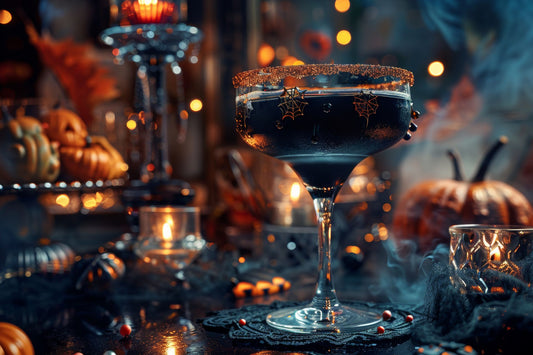
Non-alcoholic Halloween cocktails that will impress everyone
Witchy cocktails for Halloween night - alcohol-free! This year, make magical drinks that will not only look fantastic at a Halloween party, but also make you feel like you're not afraid of them the next day. 6 flavors, 6 moods, 6 creative servings - with 6 unforgettable cocktails.
Non-alcoholic Halloween cocktails that will impress everyone
Witchy cocktails for Halloween night - alcohol-free! This year, make magical drinks that will not only look fantastic at a Halloween party, but also make you feel like you're not afraid of them the next day. 6 flavors, 6 moods, 6 creative servings - with 6 unforgettable cocktails.
-
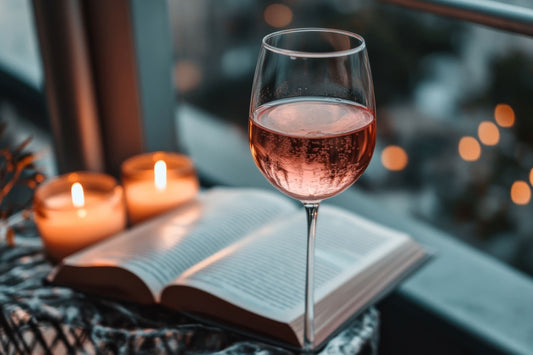
Celebrate World Mental Health Day with a non-alcoholic drink
Október 10. a mentális egészség világnapja – és egy remek alkalom arra, hogy kicsit jobban fókuszáljunk a lelki egyensúlyunkra. Egy alkoholmentes ital például tökéletes első lépés lehet ezen az úton.
Celebrate World Mental Health Day with a non-alcoholic drink
Október 10. a mentális egészség világnapja – és egy remek alkalom arra, hogy kicsit jobban fókuszáljunk a lelki egyensúlyunkra. Egy alkoholmentes ital például tökéletes első lépés lehet ezen az úton.
